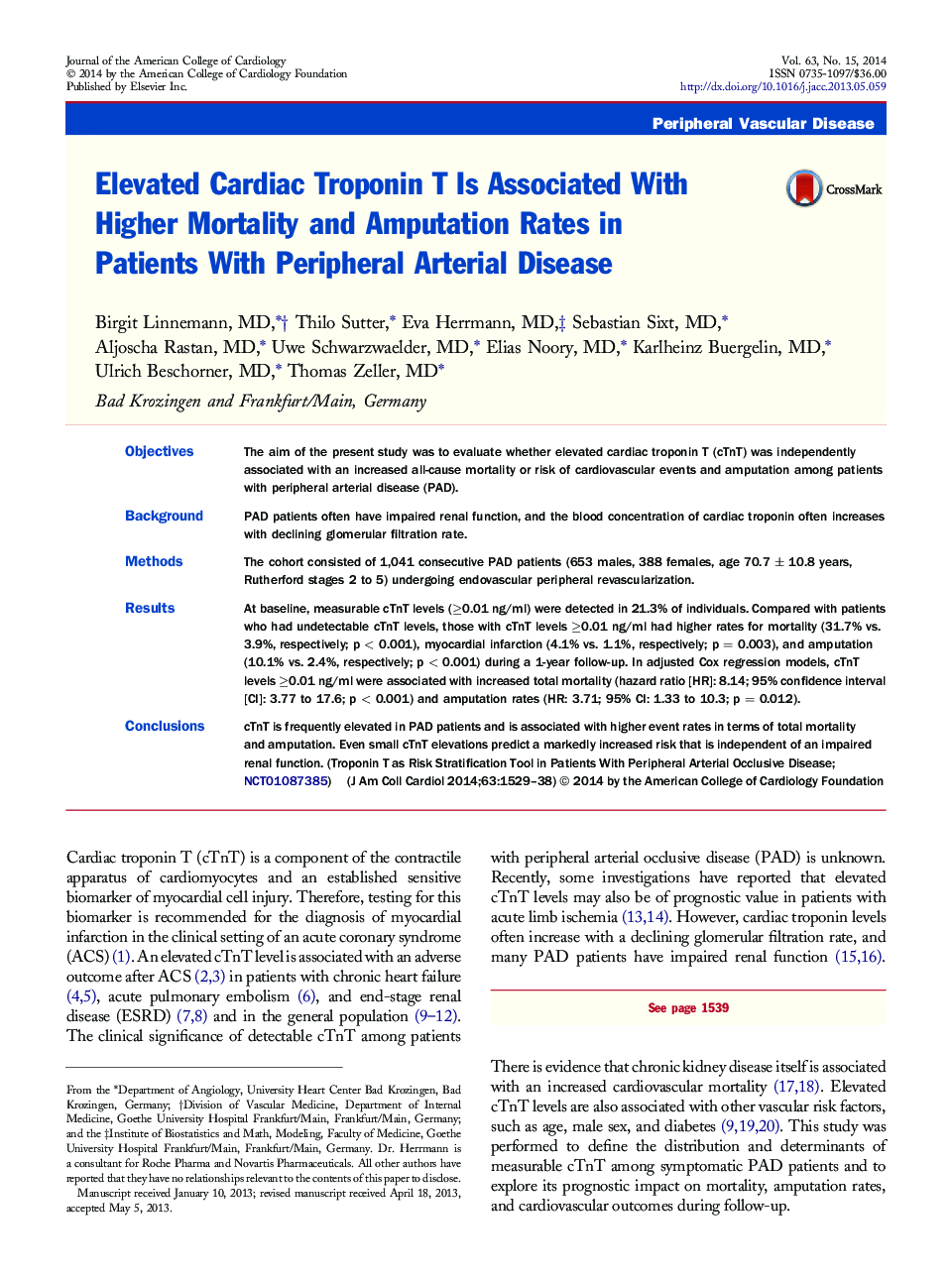| Article ID | Journal | Published Year | Pages | File Type |
|---|---|---|---|---|
| 2945565 | Journal of the American College of Cardiology | 2014 | 10 Pages |
ObjectivesThe aim of the present study was to evaluate whether elevated cardiac troponin T (cTnT) was independently associated with an increased all-cause mortality or risk of cardiovascular events and amputation among patients with peripheral arterial disease (PAD).BackgroundPAD patients often have impaired renal function, and the blood concentration of cardiac troponin often increases with declining glomerular filtration rate.MethodsThe cohort consisted of 1,041 consecutive PAD patients (653 males, 388 females, age 70.7 ± 10.8 years, Rutherford stages 2 to 5) undergoing endovascular peripheral revascularization.ResultsAt baseline, measurable cTnT levels (≥0.01 ng/ml) were detected in 21.3% of individuals. Compared with patients who had undetectable cTnT levels, those with cTnT levels ≥0.01 ng/ml had higher rates for mortality (31.7% vs. 3.9%, respectively; p < 0.001), myocardial infarction (4.1% vs. 1.1%, respectively; p = 0.003), and amputation (10.1% vs. 2.4%, respectively; p < 0.001) during a 1-year follow-up. In adjusted Cox regression models, cTnT levels ≥0.01 ng/ml were associated with increased total mortality (hazard ratio [HR]: 8.14; 95% confidence interval [CI]: 3.77 to 17.6; p < 0.001) and amputation rates (HR: 3.71; 95% CI: 1.33 to 10.3; p = 0.012).ConclusionscTnT is frequently elevated in PAD patients and is associated with higher event rates in terms of total mortality and amputation. Even small cTnT elevations predict a markedly increased risk that is independent of an impaired renal function. (Troponin T as Risk Stratification Tool in Patients With Peripheral Arterial Occlusive Disease; NCT01087385)
